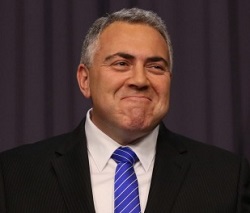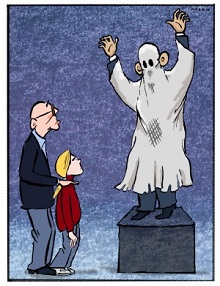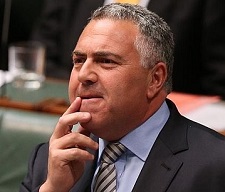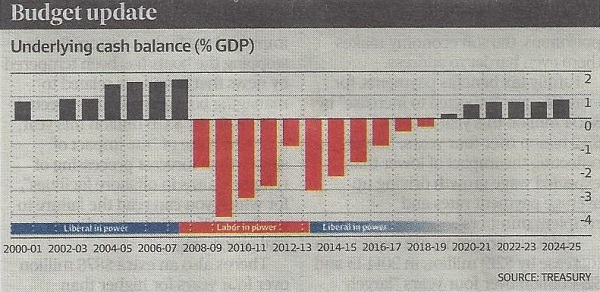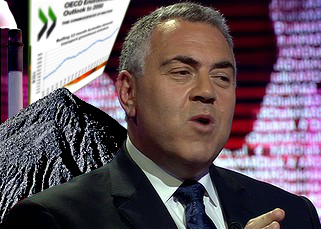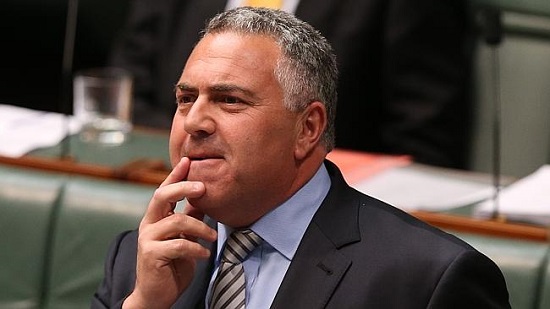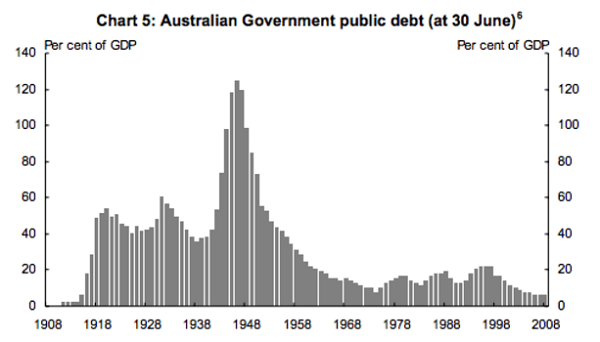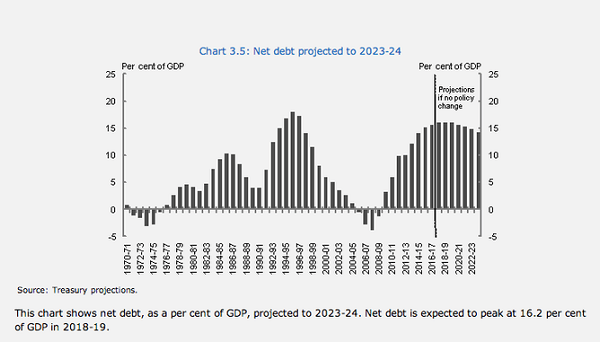Back in 2010 just after the election and before the Gillard minority government had been formed, Laura Tingle wrote:
There are two possible explanations for how an opposition presenting itself as an alternative government could end up with an $11 billion hole in the cost of its election commitments.
One is that they are liars, the other is that they are clunkheads. Actually there is a third explanation: they are liars and clunkheads.
But whatever the combination, they are not fit to govern. (Emphasis added)
I visited this theme again in 2013 before the election, when Tingle took a look:
at where the PEFO numbers leave the LNPs budget task and finds that, at best, $25 billion more in ‘saves’ will be required.
She was commenting on the competence of the Joe Hockey/Andrew Robb team. Robb has of course since been replaced by Mathias Cormann.
Peter Martin has now written a searing critique of the Abbott government’s economic performance against what they tell us. Cormann told the ABC
the economy was “heading in the right direction”. He wanted “to build on the achievements we made in 2014”.
Martin comments:
That year began with a quarterly rate of economic growth of 1 per cent. After the budget, it slid to 0.5 per cent, and then to 0.3 per cent. It’s falling, rather than rising. The direction is down. (Ignore the through-the-year figures Cormann quoted. They make the budget look good by including the very strong economic growth that preceded it.)
Here’s what the Reserve bank said:
“In Australia the available information suggests that growth is continuing at a below-trend pace, with domestic demand growth overall quite weak.”
It’s weak and it’s bleak. It isn’t heading “in the right direction”.
Hockey and Cormann will tell you that while unemployment is growing, employment is too.
The Reserve Bank points out that monthly hours worked have scarcely changed since December 2011 despite three years of population growth. They barely moved at all in 2014.
Hockey told us the poorest Australians “either don’t have cars or actually don’t drive very far in many cases.” They do. Petrol is a bigger part their budget than it is for the rich.
Hockey said:
his own wealthy electorate of North Sydney had “one of the highest bulk-billing rates in Australia”.
Make that one of the lowest in Sydney.
Hockey said that typical Australians pay nearly half their income in tax. They don’t. Even those on $200,000 pay only 36%.
Then this:
Hockey said Australia was on track to run out of money to pay for its health, welfare and education systems. The figures put forward by his then health minister suggested otherwise. In ten years the cost of Medicare had climbed 124 per cent, the cost of the Pharmaceutical Benefits Scheme 90 per cent and the cost of public hospitals 83 per cent. But Australia’s gross domestic product – the money we would use to pay for these things – climbed 94 per cent.
Trust has evaporated, and without trust consumers and business lack confidence, which has been sliding since September.
Specific businesses are at a standstill. Universities don’t know what fees they will be allowed to charge, students enrolling don’t know what fees they will eventually be asked to pay, doctors don’t know what will happen to their incomes, electricity generators don’t know what will happen to the renewable energy target, big businesses don’t know whether they will be hit with the 1.5 per cent paid parental leave levy and what it will be used for.
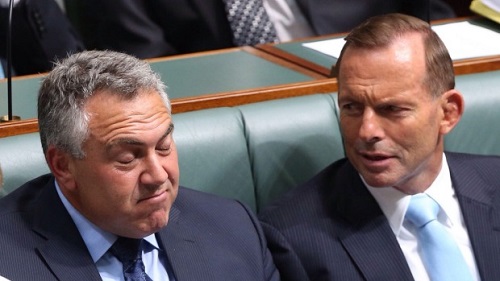
Focussing on the budget, Alan Austin at Independent Australia finds a revenue megafail, all of the government’s own making.
Failures in revenue include:
1. Closing off $7.6 billion in annual revenue from the carbon tax
2. Closing off $3.4 billion revenue from the mining tax
3. Closing off $3.6 billion from changes to tax and superannuation rules
4. Failing to pursue $1.1 billion shifted by multinational companies to offshore tax havens
5. Failing to pursue other tax avoidance schemes
6. Failing to pursue tax evasion
7. Failing to forecast resources revenue write-down
8. Failing to anticipate falling revenue from corporate sector
This comes on top of the earlier post in which Austin found 40 expenditure items where money was wasted. Such as the Italian Carrara marble panelling Defence is putting in a Canberra building, to take one at random.
On the revenue megafail, Austin says, all were Coalition decisions, the deterioration has been dramatic, we got precisely the opposite of what was promised, it will take a treasurer and finance minister with a high level of competence, courage and authority to restore the situation, and finally, as the experiences of Spain, Ireland, Hong Kong, Venezuela and other countries show, damage done to an economy in a short time can take decades to repair.
On debt Austin says:
The Abbott Government inherited the best-performed economy in the world in 2013. Some say the best the world has seen since data collection began. Within nine months, however, ABC Fact Check confirmed deficits for the forward estimate period had doubled over Labor’s level. Now, after 17 months, net government debt has increased over Labor’s by 34.6%. It’s on track to have doubled by this time next year.
I think the initial question about liars and clunkheads answers itself.
Chris Bowen promises us a warts and all budget narrative. We’ll have to wait and see. Meanwhile Hockey is setting up to scare us to death with the intergenerational report.
See also
Hockey’s debt and deficit mess.
Abbott explodes his economic credibility


